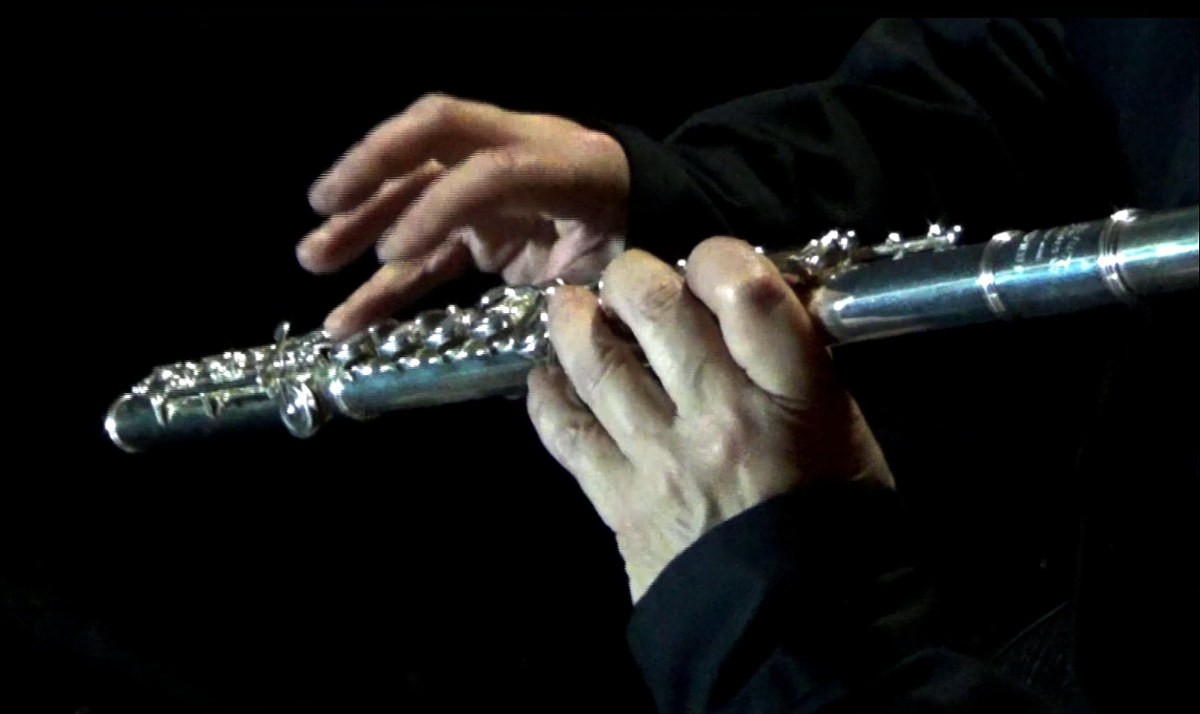
Hover over the links to learn about them before clicking. The links are all set to open in a new tab or window if on a tablet or PC.
Both the flutes I play, my beloved new Haynes and my Azumi, are what we flutists call ‘open hole’. Since suffering a broken elbow, one of my ring fingers doesn’t work quite how it used to. So, for that particular key, I’ve had to resort to using a little silicon plug to fill the hole. Plugging it brought about a discovery. First some back history, though.
When I play, due to bad training at the onset of my learning way back when, I have ‘high fingers’. A lot of flutists do, and it’s all from being started wrong. I’ve got another problem that is compounded by my high fingers. I’m indelicate, especially when playing intensely and with enthusiasm for a piece. Happily immersed, I’m completely unconscious that I’m pounding down the keys with my fingers, fingers which are quite strong and ‘athletic’ from riding horses since before I could ride a tricycle, from mucking stalls, hefting heavy hay bales, and all the other associated physical labor that goes along with girls and horses, fences and barns. That pounding of the keys wasn’t noticeable when I was playing classically, either solo or in an orchestra. We never used microphones or amplification, so the sound didn’t carry out to the audience.
Enter husband Forrest who brings things like condenser microphones into my life. Touchy, sensitive, can-hear-an-ant-walk-across-the-floor torture devices, condenser mics pick up everything! (Please don’t sneeze, cough, or laugh, or you’ll blow the mic’s diaphragm, rendering this very expensive and intimidating piece of equipment to the trash bin.) It didn’t matter if it was the huge monster mic that hangs suspended in its grotesque-looking mount or the tiny one on my headset hovering by my cheek. Both picked up every touch of hand, breath, and finger on the flute, every shift of a sheet of music. If I shifted my hand, it came through like a desperate grab for survival. When I inhaled through my nose and my mouth, something we do to get as much air into our lungs as fast as possible, it sounded like a dragon sniffing out dinner, while inhaling just through my mouth produced a slightly better result — a gryphon readying to roar. (We went with inhaling by mouth as preferable, though that significantly reduces the amount of air I can pull in the nanosecond usually allotted me by rock music.) The fingers? There seemed no hope for those, unless I really, really concentrated on finger technique instead of playing music, and, as any musician knows, no performance goes well if you’re not letting go every inhibition to ‘let it happen’.
But, listening, I noticed that one key wasn’t popping …or, should I say, wasn’t popping as much — the plugged hole.
Hmmm. Time to experiment.
Plug the rest of the open holes. …And, what do you know! The popping was cut in half, a great improvement.
‘French’, or open holed, flutes have their advantages, especially up in the flute’s fourth register (piccolo territory). It’s a register only used in obscure pieces that nobody much ever listens to or plays, unless in a flute competition or for a special performance featuring a composer’s works. Of course, open holes do have other uses, as well. They allow one to play a flutist’s version of chords, bend notes, and play quarter tones …among other abstract uses. For standard playing, however, plateau flutes, that is, flutes which don’t have open hole keys, work just fine, and, despite opinion to the contrary, don’t negatively affect tone quality and resonance, at least not to any but the most infinitesimal degree, if that. Plugging up the holes wouldn’t matter for most of what I’m asked to play now.
My experiment and opinion aside, the real test came when we had our next recording session. And, sure enough, though my right hand’s index and, especially, my middle finger still smacked the keys with such vigor that, thanks to the condenser mic, you’d think somebody was popping bubble-wrap during the session, the sound was much, much quieter. Darn. If only I’d known before we started laying down tracks long months ago.
